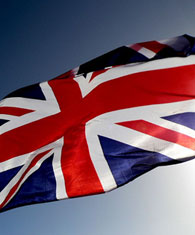 BP has been blocked from seeking new contracts with the US government because of the oil company’s lack of business integrity’ during the Gulf of Mexico oil disaster, the Environmental Protection Agency said Wednesday. The temporary order bans BP from competing for new oil leases in the Gulf of Mexico – such as the auction of 20m acres taking place on Wednesday – or from bidding on new contracts to supply the Pentagon or other government agencies with fuel. While the ban does not affect existing business, it raises wider questions about the company’s future in a crucial market. [The Guardian]
BP has been blocked from seeking new contracts with the US government because of the oil company’s lack of business integrity’ during the Gulf of Mexico oil disaster, the Environmental Protection Agency said Wednesday. The temporary order bans BP from competing for new oil leases in the Gulf of Mexico – such as the auction of 20m acres taking place on Wednesday – or from bidding on new contracts to supply the Pentagon or other government agencies with fuel. While the ban does not affect existing business, it raises wider questions about the company’s future in a crucial market. [The Guardian]
Brazil’s economy is expected to have grown at an annualised rate of 4 per cent or above in the third quarter and is likely to maintain this pace through next year and into 2014, according to Guido Mantega, finance minister. His prediction of a strong rebound in Latin America’s largest economy came as the central bank kept lending rates unchanged for the first time in more than a year after an easing cycle in which they fell to an all-time low of 7.25 per cent. [Financial Times]
Comet is to close a further 125 stores – with the loss of 2,500 jobs – over the next few weeks, and it may shut down its entire business before the end of the year unless a buyer can be found, the administrator, Deloitte, has warned. More than 1,000 jobs have been cut so far across the 41 stores already shut, and all 5,000 remaining staff are at risk of being unemployed by Christmas. The 70 stores that remain open will continue trading until all their stock has been sold and, with a last-minute takeover looking unlikely, it would be the biggest retailing collapse since Woolworths, which went into administration four years ago this week, with the loss of 24,000 jobs. [The Guardian]
David Cameron has been warned that proposals to set a minimum price for alcohol in England and Wales are illegal under European law. The European Commission has sent a nine-page legal opinion to the British Government warning that minimum prices are illegal – and that the Treasury should increase duty on alcoholic drinks if it wishes to raise the price. However, ministers appear to have decided to defy the legal warning and yesterday unveiled proposals to introduce a 45p minimum price for each unit of alcohol. [The Telegraph]
Barclays is considering exiting agricultural commodities trading as part of the UK lender’s attempts to rebuild its battered reputation after a series of scandals. The possible retreat from the controversial business is part of a strategic overhaul by the bank’s new chief executive Antony Jenkins, who is screening the reputational impact of every business line Barclays operates in. [Financial Times]
Tony Blair has warned that an exit from Europe would be “hugely destructive” to Britain’s long-term interests and that an “anxious” business community will now move to make itself heard. In an impassioned speech to Business for New Europe, a pro-European coalition of business leaders, hosted by Chatham House in central London, the former Labour prime minister said London’s leading financial centre would be damaged if Britain retreated from Europe and warned that companies would find it less appealing to do business. “Third party companies often want London as a base for Europe”, he said. [The Times]
Barclays yesterday said five employees had been sacked as a result of the Libor-fixing scandal which landed the bank with a £290m fine and cost its chairman and chief executive their jobs. Rich Ricci, the chief executive of Barclays’ corporate and investment banking division, told the Parliamentary Commission on Banking Standards that “a lot” of the individuals identified in its internal probe had left the bank, so it could not take action against them. He added that eight additional staff had also been disciplined. [The Independent]
Oil major BP appears back on track to renew a key Middle Eastern contract following yesterday’s agreement to sell a package of North Sea assets to the state-controlled energy firm of Abu Dhabi. Taqa, which is three-quarters owned by the Abu Dhabi government, will pay more than $1 billion (£625 million) for stakes in five BP oil fields. The deal brings the British group within touching distance of a targeted $38bn of disposals needed to shore up its balance sheet ahead of its trial over civil fines for the Deepwater Horizon disaster in the US. However, the agreement also suggests that BP might still win back a long-running oil concession that is the linchpin of its operations in the Middle East.[The Scotsman]







